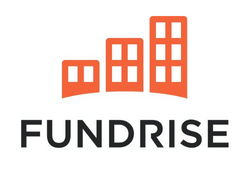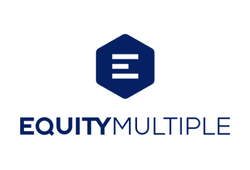If you’re looking for a new investment option that offers great potential returns, you should check out Yieldstreet Inc. This company is based in New York and offers investors a variety of alternative investment options that go beyond stocks and bonds.
Fees 1%-4% annually
Fortunly Rating
Fortunly's Rating: Our editorial team determines the rating based on a set of evaluation criteria developed for each product and service category.
- Diverse investment options
- Low minimum for short-term notes and Prism Fund
- Self-directed IRAs available
- Investments are assets-backed
- Illiquid investments
- Mostly for accredited investors
Yieldstreet Overview
Yieldstreet is an American investment company founded in 2014 and based in New York.
The idea behind this investment platform is to give users an opportunity to invest in assets that are usually reserved for hedge funds and those with lots of capital.
Yieldstreet offers various investment opportunities - not just stocks and bonds - so you can diversify your portfolio by investing in real estate, art, marine, aviation, and IRAs, to name a few fields.
The majority of Yieldstreet’s funds are reserved for accredited investors only, but the Prism Fund is also available for nonaccredited investors.
How Yieldstreet Compares to Similar Investing Platforms

$500
1%-4% annually

$10
0.15% annually

$5,000
0.5%-1.5% annually
Who Should Invest With Yieldstreet?
If you’re looking to diversify your portfolio, you can do so with Yieldstreet by investing in various asset-based funds like real estate, marine, or art, or by simply investing in the Yieldstreet Prism Fund, which is a multiasset fund that’s great for beginners.
There are funds for both accredited and nonaccredited investors. While Yieldstreet claims to present those investing opportunities that are usually reserved for hedge funds to everybody, it’s mainly accredited investors who will get those opportunities.
Yieldstreet Investments
You can invest in IRA funds, short-term notes, or the Prism Fund. Alternatively, you can create your own customized portfolio with individual offerings.
Most of the investments on offer are asset-based, which gives them added security.
Individual Offerings
Investing in alternatives to stocks and bonds is the reason you’d consider joining Yieldstreet in the first place. You can choose from various asset classes and diversify your portfolio as it suits you. Although there are a lot of options to choose from, you won’t necessarily always find the exact investment you’re looking for.
The minimum investment varies significantly according to the asset class, but it usually starts with $10,000 or $15,000.
The average investment brings at least 8% annual returns for its investors. With these high numbers, there is certainly a higher risk attached. That’s where diversifying your portfolio will bring you benefits, as your profits and risks won’t depend on just one type of investment.
Real Estate
Investing in real estate is one of the better options for long-term investments, as such assets are among the easiest to liquidate. Yieldstreet has already funded $875 million in this asset class. And with statistics showing that the home market has been its busiest since the ‘90s, we can see why this asset class is so popular with investors.
Legal
If you’re an accredited investor, you can also invest in various legal transactions. The invested capital is used by law firms and plaintiffs to finance lawsuits, with investors getting their shares of the lawsuit once it is claimed.
Commercial
Commercial funds can include anything from supply chain financing to the acquisition of a fertilizer plant that will generate cash flow. As with other Yieldstreet funds, there is plenty of diversity; if the current offer doesn’t suit you, something more attractive may come along in time.
Art
With its art equity funds, Yieldstreet offers its investors a chance to take part in the blue-chip art market.
The company's clients have already invested more than $500 million in these assets.
Marine
Marine investments may involve investing in the acquisition of a vessel that should generate profit. The annual interest rate for this kind of investment is currently 8%. There is also an insurance policy that will cover you for 100% of your investment.
Aviation
Aviation is one of the newer asset classes to be added to Yieldstreet’s portfolio. This fund will invest in commercial aircraft that are being leased to airlines and other companies.
Short-Term Notes
Yieldstreet short-term notes are accessible only to accredited investors. The return rate offered here is very good compared to that of its main rivals: 4.6%.
The minimum for investment is $500, making this fund a reasonable investment if you’re not sure where to put the bulk of your money. Unlike most Yieldstreet funds, where you have to lock up your money for years, you can liquidate your investment with short-term notes in six months and make a profit while you’re considering your next long-term investment.
The downside is that short-term notes are accessible only to accredited investors. This is a shame, because such an offer would be very attractive for all investors with its low minimum and short liquidation period.
Yieldstreet Prism Fund
The Prism Fund is available to nonaccredited investors, although its low investment minimum of only $500 might attract accredited investors too.
This is a managed multiasset fund. The annual fee of 1.5% applies only to assets that have been invested.
The Prism Fund is diversified and includes asset classes such as real estate, transportation, legal, art, and several others. So even if you invest in just this one fund, you’ll get access to a wide range of options.
IRA
Another alternative that’s worth considering for your investments is an IRA account. You can open an IRA account and keep it separate from the account that holds your stocks and bonds.
There are traditional, Roth, and SEP IRAs available. While you can find online platforms that don’t charge any fees for IRA accounts, with Yieldstreet you’ll need to pay annual fees of $299 for accounts ranging from $0 to $99,999 and $399 for IRA accounts above $100,000.
Fees
The managerial fees are between 1% and 4% annually, and the exact percentage will depend on the type of fund you have.
We appreciate that Yieldstreet is pretty clear about its fees; once you’re set to invest in a certain fund, you’ll know the exact fee upfront. There are no unwanted surprises that you might experience with some other investment platforms.
Our Verdict
With companies such as Yieldstreet, you get access to a part of the market that was, until recently, reserved only for big capital. Handling these investments brings new challenges to the table, because finding investments that are safe and that can generate passive income isn’t easy.
We hope we’ve shown you the potential that an alternative investment platform can bring to your portfolio, as well as the risks that these high-return investments come with.
